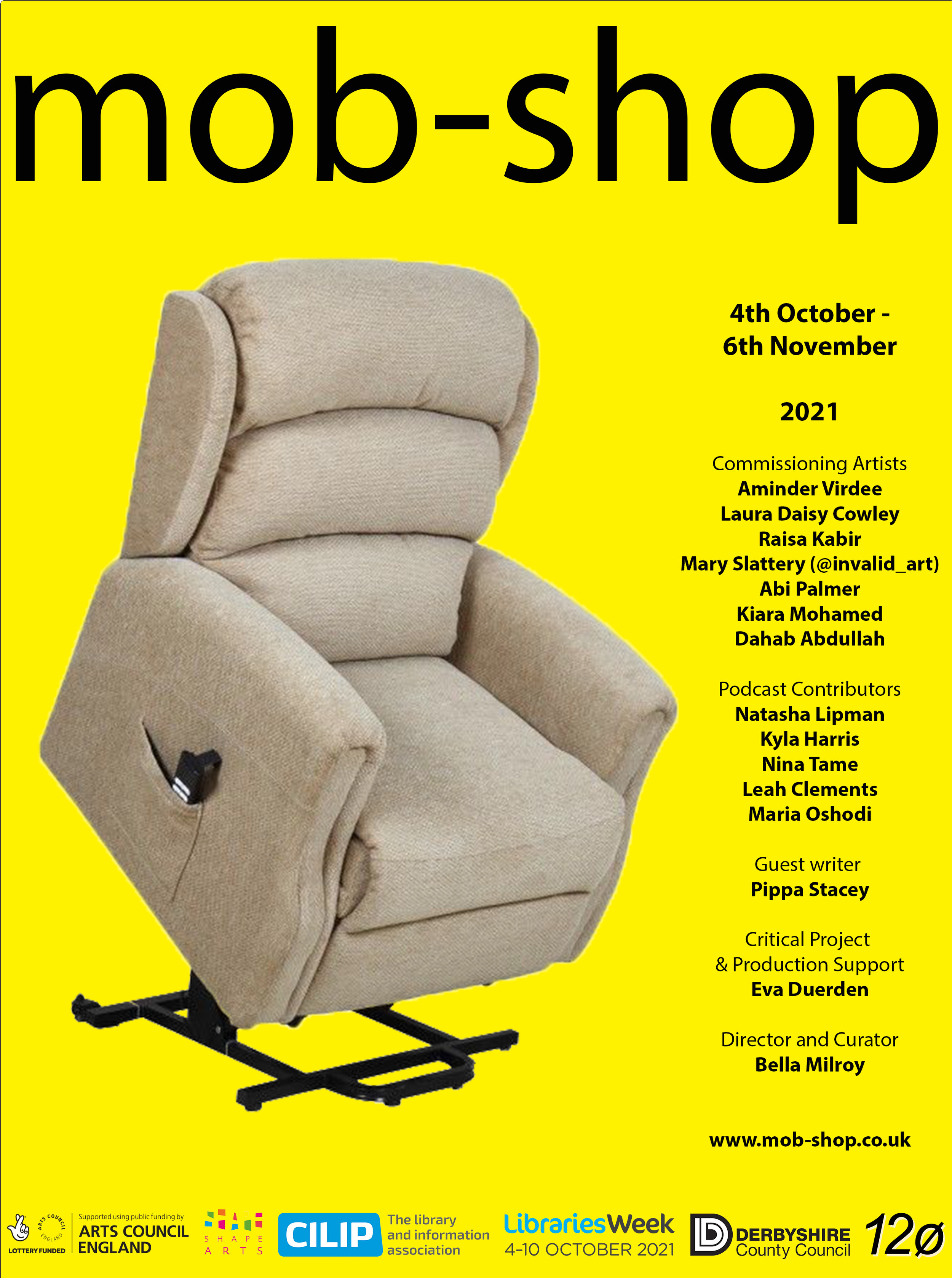Mob-Shop
Year: 2021
Mob-Shop was a disabled-led project exploring mobility shops, mobility aids, and the devices and practices used by and designed for disabled and chronically ill people.
The project aimed to expose the concept of mobility shops in where they sit in the cultural consciousness of disabled experiences, and center them in ways that could potentially offer new and better alternatives to the generic, medicalised, grey-beige-purgatory of how they exist today.
Void of fashion, youth-culture and any form of autonomy and self-expression, mobility shops are a fascinating example of the excruciatingly rigid and ableist narrative that cuts right to the heart of how society sees disabled people.
Mobility shops do not reflect the reality of disabled experiences, and the aids and devices that are supposedly designed exclusively for us, so often fail us in offering variety of choice, identity or imagination. As physical spaces, they are both geographically and socially located on the peripheries.
Mob-Shop attempted to counter this by centring disability culture and the wealth of shared knowledge and wisdom of our disabled community, placing some of these peripheral experiences as a core focus of this programme.
This programme commissioned disabled artists to respond speculatively to the concept of the mobility shop, and explore the practices of the aids and devices disabled people use every day.
In a series of newly created artworks, writing, residencies, workshops and podcasts, this project invites audiences to creatively reflect upon what the design and aspiration of accessible products, spaces and practices might embody.
Artworks were featured across Derbyshire Libraries between October and December 2021, of which archived documentation can be found on the Mob-Shop website (currently being updated). There you can also find all episodes of the podcast, details of the artist in residence, see the digital copy of the publication and enjoy the video recording of one of the workshops.
Mob-Shop was generously supported by 12ø Collective, Derbyshire Libraries, CILIP, Shape Arts and Arts Council England.
Find out more here.

